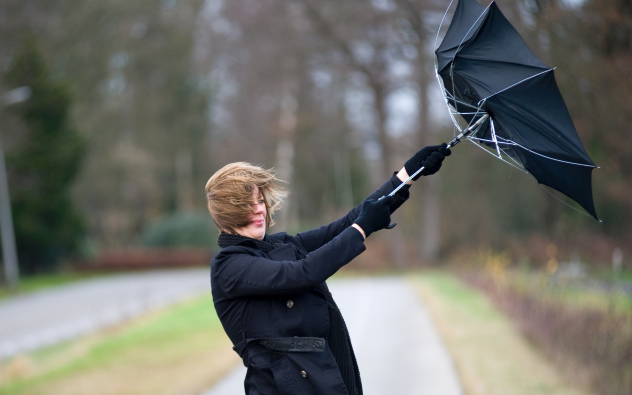People often don’t feel well when it’s windy. Why is this?
K.P. Buteyko MD-PhD explained that with windy weather comes a change of atmospheric pressure. This reduces the level of carbon dioxide in the lungs, which is already scarce for most people. A CO2 deficit always leads to the deterioration of health and makes symptoms more active. This explains why a person’s health can get worse during the spring when the weather is unstable and often windy.
My clients sometimes say, I was improving my breathing so well, and suddenly, for no reason, I began wheezing or coughing.
“Was it windy outside?” I ask.
“Yes, terribly windy!”
“This was the reason for your sudden breathing difficulties,” I reply.
During windy weather, it is essential to be vigilant of your breathing. Keep in mind that if your Positive Maximum Pause (PMP) is below the Buteyko norm, most likely, you will be affected by a strong wind. If your morning PMP is below 10 seconds, a strong wind will significantly impact you; if your PMP is about 25 seconds, you will be affected mildly; if it is around 40 seconds, you will be somewhat affected or not at all. Of course, if your morning Positive Maximum Pause is stable at the level of the norm (also called the level of optimal health), which is 60 seconds or higher, then you will not be affected by winds anymore. In general, when your breathing becomes healthy, you will no longer be impacted by weather changes. Until then, you need to be careful and pay a great deal of attention to your breathing, especially when winds are howling around your home.
Anticipating a windy day, you can prevent or decrease its impact on your well-being by boosting your CO2 level in the morning, as early as possible. How? If you know how to apply the Buteyko Method, start your day by practicing breathing exercises, doing a slow cardio exercise, chanting, or using other Buteyko tools for breathing improvement.
If you could not prevent the impact of a wind strike, there is still a chance to better the situation by taking care of your respiration as soon as you have a chance. Sit in a warm, comfortable, quiet place and have a cup of Buteyko tea (warm water with salt). Start listening to Breathing Normalization Meditations as this will help you relax, decrease your air intake and boost your CO2 concentration as well as overall oxygenation. Afterward, you might choose to practice gentle breath holds for about 20 minutes. If you need instructions on how to do Buteyko Breathing exercises, you will find them in our instructional self-study video course.
Also, talking less and wearing a Buteyko breathing reduction belt can help you feel better during a windy day. Needless to say, avoiding mouth-breathing, whether during day or night, and gentle breathing exclusively through the nose will help you to be less affected by any inclement weather conditions.


